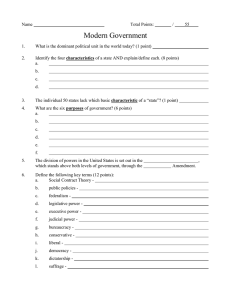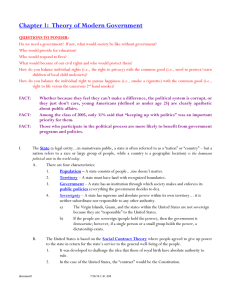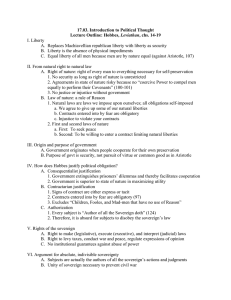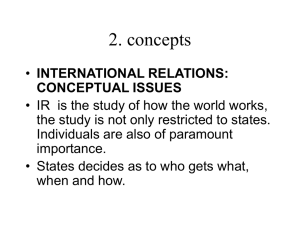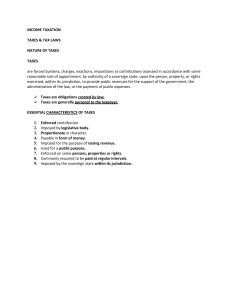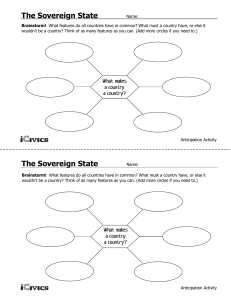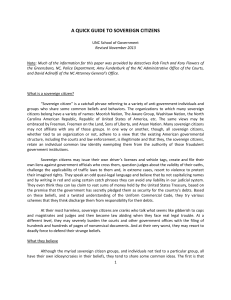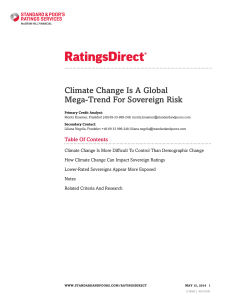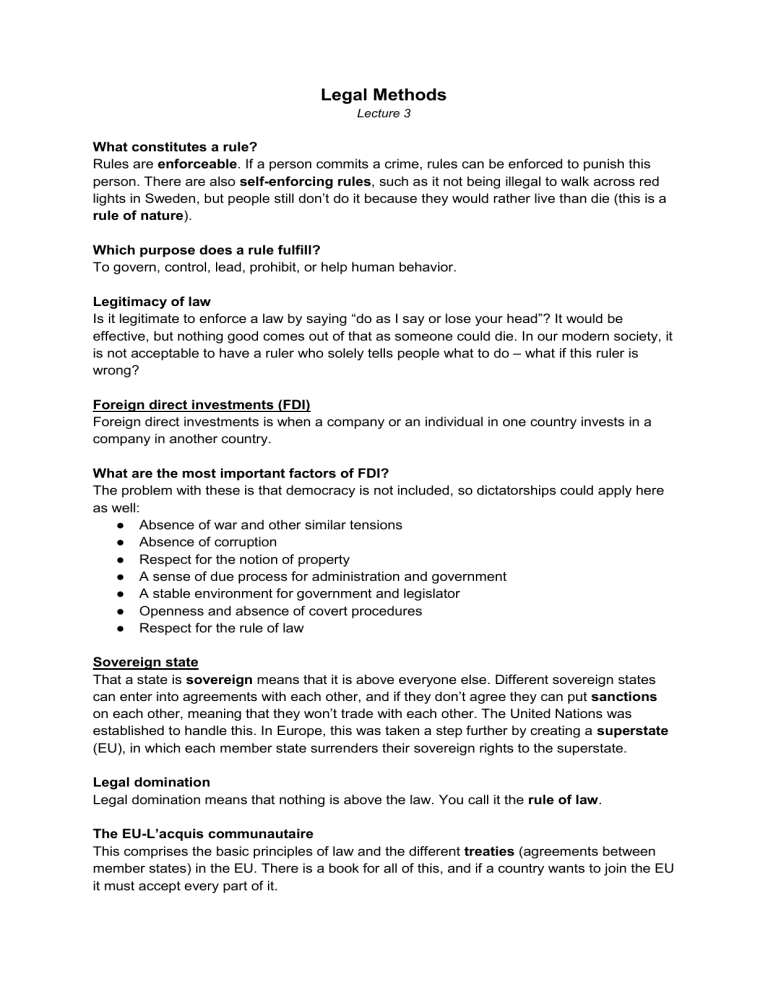
Legal Methods Lecture 3 What constitutes a rule? Rules are enforceable. If a person commits a crime, rules can be enforced to punish this person. There are also self-enforcing rules, such as it not being illegal to walk across red lights in Sweden, but people still don’t do it because they would rather live than die (this is a rule of nature). Which purpose does a rule fulfill? To govern, control, lead, prohibit, or help human behavior. Legitimacy of law Is it legitimate to enforce a law by saying “do as I say or lose your head”? It would be effective, but nothing good comes out of that as someone could die. In our modern society, it is not acceptable to have a ruler who solely tells people what to do – what if this ruler is wrong? Foreign direct investments (FDI) Foreign direct investments is when a company or an individual in one country invests in a company in another country. What are the most important factors of FDI? The problem with these is that democracy is not included, so dictatorships could apply here as well: ● Absence of war and other similar tensions ● Absence of corruption ● Respect for the notion of property ● A sense of due process for administration and government ● A stable environment for government and legislator ● Openness and absence of covert procedures ● Respect for the rule of law Sovereign state That a state is sovereign means that it is above everyone else. Different sovereign states can enter into agreements with each other, and if they don’t agree they can put sanctions on each other, meaning that they won’t trade with each other. The United Nations was established to handle this. In Europe, this was taken a step further by creating a superstate (EU), in which each member state surrenders their sovereign rights to the superstate. Legal domination Legal domination means that nothing is above the law. You call it the rule of law. The EU-L’acquis communautaire This comprises the basic principles of law and the different treaties (agreements between member states) in the EU. There is a book for all of this, and if a country wants to join the EU it must accept every part of it. Some major different legal systems ● Common law - Case law is of primary importance, which means that you base the legal system on previous cases. The belief is that it is unfair to treat similar facts differently on different occasions. A disadvantage is that you are bound to apply the reasoning used in prior decisions. However, it is also necessary where you don’t have underlying statutes (i.e. laws). Used in the UK. ● Civil law - Statutes created by authorities. This allows courts to interpret law rather than create it as in common law. Used in Sweden. Various things Tort is a wrong that involves a breach of a civil duty owed to someone else. Fraud is a deception made for personal gain. Tortious interference is when one person intentionally damages the plaintiff's contractual or other business relationships. Conspiracy is an agreement between two or more parties to deprive a third party of legal rights or deceive a third party to obtain an illegal objective. Restraint of trade is a contractual obligation not to trade.
